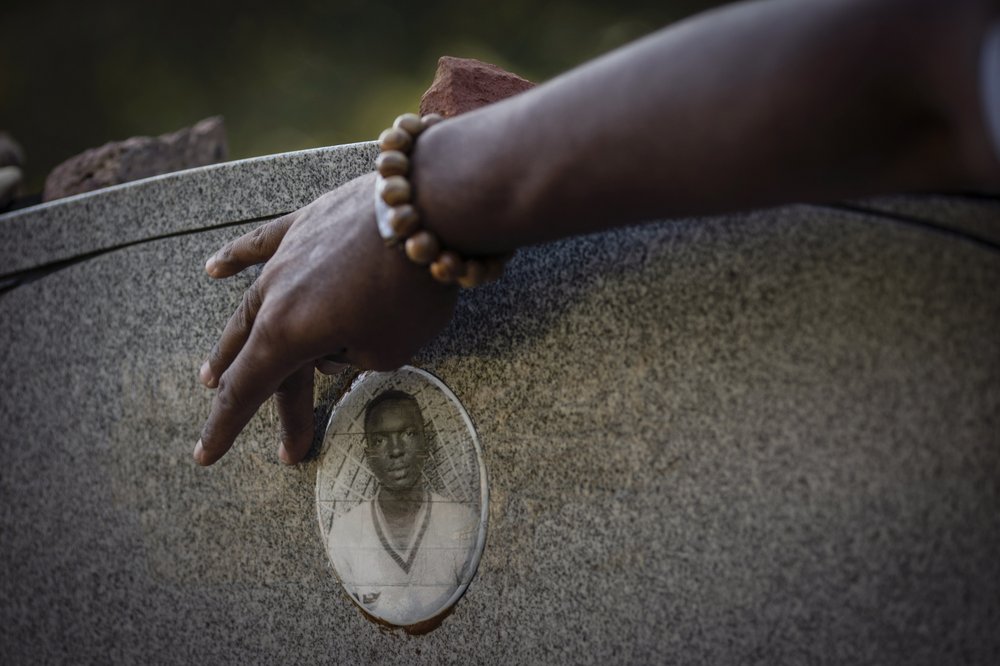
Long after murders, Black voting is still troubled in Miss.
Meridian, Miss. (AP) — The old civil rights worker was sure the struggle would be over by now.
He’d fought so hard back in the ’60s. He’d seen the wreckage of burned churches, and the injuries of people who had been beaten. He’d seen men in white hoods. At its worst, he’d mourned three young men who were fighting for Black Mississippians to gain the right to vote, and who were kidnapped and executed on a country road just north of here.
But Charles Johnson, sitting inside the neat brick church in Meridian where he’s been pastor for over 60 years, worries that Mississippi is drifting into its past.
“I would never have thought we’d be where we’re at now, with Blacks still fighting for the vote,” said Johnson, 83, who was close to two of the murdered men, especially the New Yorker everyone called Mickey. “I would have never believed it.”
Rev. Charles Johnson, 82, speaks during an interview with The Associated Press at a church where he's been a pastor for over 60 years, in Meridian, Miss. (AP Photo/Wong Maye-E)
Johnson points to an old photo of a gathering after the death of Rev. Martin Luther King Jr., during an interview with The Associated Press, in Meridian, Miss. (AP Photo/Wong Maye-E)
The opposition to Black voters in Mississippi has changed since the 1960s, but it hasn’t ended. There are no poll taxes anymore, no tests on the state constitution. But on the eve of the most divisive presidential election in decades, voters face obstacles such as state-mandated ID laws that mostly affect poor and minority communities and the disenfranchisement of tens of thousands of former prisoners.
By at least one measure, it’s harder to vote in Mississippi than any other state. And despite Mississippi having the largest percentage of Black people of any state in the nation, a Jim Crow-era election law has ensured a Black person hasn’t been elected to statewide office in 130 years. After years of being shut out of state races, Democrats hope mobilizing Black voters and recruiting Black candidates can eventually give them a path back to relevance in one of the reddest of red states.
But sometimes, it can seem that voting rights in Mississippi are like its small towns and dirt roads, which can appear frozen in the past.
______
This story was produced with the support of the Pulitzer Center on Crisis Reporting.
_____
Decades after the murders, the narrow county road where they happened still turns pitch black after dark. Pine forests press in from both sides. The only light comes from a couple distant houses and the ocean of stars overhead.
One night in early October we stopped the car along the road and I stepped out. The songs of crickets filled the air. In the distance, I could hear the occasional truck driving past on Highway 19.
The killers who traveled that road in 1964 were local men - Ku Klux Klan members, a deputy sheriff, a few others. The victims were three young civil rights workers - the oldest just 24 - who had joined a mass campaign that over the coming years helped bring voting rights to Black Mississippi. The men, one Black and two white, were shot at close range. Their bodies were found in an earthen dam 44 days later.
From left, Michael Schwerner, 24, of New York, James Cheney, 21, from Mississippi, and Andrew Goodman, 20, of New York. (AP Photo/FBI, File)
Today, with the presidential election weeks away, three of us on a reporting trip across America wanted to see what things were like in a state where the simple act of voting was impossible for nearly every Black person well into the 1960s. In a year when America has been marked by so many convulsions - a pandemic, an economic crisis, countless protests for racial justice, a virulent political divide - the road trip has been a way to look more deeply at a country struggling to define itself.
A portrait of James Chaney is seen on the headstone of his grave in Meridian, Miss., Saturday, Oct. 3, 2020. Chaney was one of three civil rights activists that was kidnapped by a deputy sheriff and local Klansmen, and driven to a narrow country road and shot at close range. Their bodies, buried in an earthen dam, were found 44 days later. (AP Photo/Wong Maye-E)(AP Photo/Wong Maye-E)


 How to resolve AdBlock issue?
How to resolve AdBlock issue? 